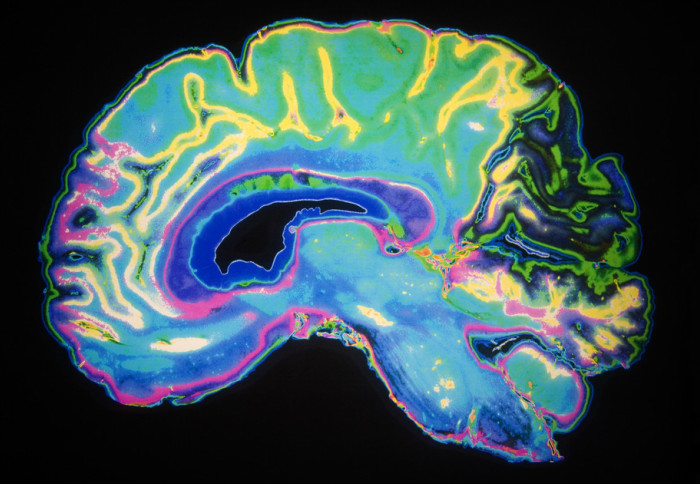Problems in thinking and attention linked to COVID-19 infection
by Ryan O'Hare

UK researchers have found further evidence of the lingering mental impacts of COVID-19 in people who have recovered from the disease.
In an observational study involving more than 80,000 people, researchers found that those with more severe COVID-19 symptoms generally scored lower in a series of online tests, with performance on reasoning and problem-solving tasks being most affected.
Further analysis showed that those who received mechanical ventilation to help them breathe whilst in hospital had the greatest impairment on cognitive tasks.
This research is all converging to indicate that there are some important effects of COVID-19 on the brain that need further investigation Dr Adam Hampshire Department of Brain Sciences
According to the team, the findings further highlight how COVID-19 infection can have lasting, and measurable, impacts on people’s brain function.
The study was a collaboration between King’s College London, Imperial College London and Cambridge University, and is published in the journal EClinicalMedicine.
Dr Adam Hampshire, from Imperial’s Department of Brain Sciences and first author, said the work adds to a growing body of research looking at how COVID-19 might be impacting the brain and brain function.
“This research is all converging to indicate that there are some important effects of COVID-19 on the brain that need further investigation,” he explained.
Online tests
The latest study carries on from a series of online tests developed by Dr Hampshire as part of BBC2 Horizon’s Great British Intelligence test.
In early 2020, the study team extended the questionnaires to gather information on SARS-CoV-2 infection, the symptoms experienced and the need for hospitalisation.
From 81,337 people who provided complete data, 12,689 people suspected they had COVID-19. Participants reported a range of severity of illness, with many experiencing respiratory symptoms whilst still being able to stay at home (3,559 participants).
Nearly 200 were hospitalised (192 participants) and about a quarter of these (44 participants) required mechanical ventilation.
The time since illness onset was around one to six months, meaning the study could not draw any definitive conclusions about whether these effects on cognition were long-lasting.
Thinking problems
Researchers found a relationship between deficits in overall cognitive performance and the severity of respiratory symptoms people experienced.
They also found that not all areas of thinking ability correlated in the same way with COVID-19 illness and that some abilities were spared, including emotional discrimination (recognition of faces that were expressing the same emotion) and working memory (remembering where a sequence of squares appears on the screen).
In comparison ‘executive’ tasks that required skills in reasoning (such as deciding if relationships between words were similar) and problem solving seemed to show the greatest deficit.
To understand the size of the deficits the authors compared the pattern of scores on the tests to cognitive changes that occur for other reasons.
The effects in those hospitalised with mechanical ventilation were similar to the average cognitive decline seen over a period of ten years of ageing and equivalent to a seven-point difference in IQ.
Confirming links
As part of the study, the team wanted to ensure these cognitive effects were associated with COVID-19, and not linked something else. By separating those who had a confirmed positive test for SARS-CoV-2 they could show the cognitive deficits were greater in those who had a confirmed infection.

Further checks suggested the results were not due to a minority with pre-existing conditions or on-going symptoms of COVID-19. Analysis also indicated that it was unlikely that the results could be explained by the fact that those who contracted more severe COVID-19 disease were less cognitively able before they were ill.
Dr Hampshire, added: “Going forward it would be valuable to bring together brain imaging and cognitive tests with other information on mental health and everyday function, ideally in studies that track peoples' trajectories for months or even years. To really know what the long-term effects are for people will require people to be followed up over time.”
A number of studies, such as an extension to the ongoing REACT study led by Imperial, as well as Covid-CNS, led by King’s College London and University of Liverpool, are now applying these cognitive tools to study the long-term impacts of COVID-19.
Professor Mitul Mehta, from King’s College London and senior author on the study, said: “A critical question remains as to why some cognitive functions are more affected than others. It is already known that hypoxia and mechanical ventilation are associated with cognitive deficits similar to those observed in this study, and there is now evidence of neurological complications in some patients, as well as psychiatric consequences.
“As we are coming through the third wave of the pandemic, there are more available options that can reduce the severity of COVID-19 such as vaccination and effective treatments whilst in hospital. The findings from this study suggest that by reducing the severity of illness through these different approaches we may also be able to reduce the severity of cognitive difficulties people may experience.”
The research was part-funded by the UK Dementia Research Institute Care Research & Technology Centre and the National Institute of Health Research (NIHR) Imperial Biomedical Research Centre, and the NIHR Maudsley Biomedical Research Centre.
-
‘Cognitive deficits in people who have recovered from COVID-19’ by Hampshire, A. et al. is published in EClinicalMedicine. DOI: 10.1016/j.eclinm.2021.101044
This article is based on materials from King's College London.
Image: Shutterstock
Article supporters
Article text (excluding photos or graphics) © Imperial College London.
Photos and graphics subject to third party copyright used with permission or © Imperial College London.
Reporter
Ryan O'Hare
Communications Division